Question 102 : Assalamualaikum warahmatullahi wabaraktuh ya Shaykhs. I hope this question finds you in the best of health.
A brother told me that some of the products he used such as soap or shampoo contained ingredients from animals and that it was haram. He threw them away and advised me to do the same. I notice this happens often with other people and they declare goods/products to be haram without consulting scholars and just search for it on the internet.
For example, if they believe that goods such as juice, bread or other consumables may contain haram ingredients which are not so clear cut, they will immediately warn others so that they do not consume haram themselves. Their intention may have been good, but is this unintentionally spreading fitnah? They or the people they are advising may not have enough knowledge themselves regarding halal and haram to come up with their own verdict.
I might be mistaken but I learnt from class that if we had any doubts or if something is a grey area we should refer to a scholar first before telling others about it. Does that apply to this situation as well? Or is this a small matter that we can just google the ingredients ourselves to see if they are haram/halal and warn others about it.
JazakAllahu khairan barakAllahu feek.
Answer : Walaikumussalam wr wb Brother
There are multiple aspects to this issue.
If it is a matter of ingredients in a food preparation that is in question, such as food e-code number in food as e471, then it should be sufficient for any Muslim who knows how to look up those codes to check the list and decide themselves whether the food is devoid of haram ingredients or not. That person should however realize that their conclusion of food being haram or halal is dependent on that researchers research findings of the food ingredient codes. So basically in this case, it is good enough for any Muslim to check a reliable e-code list compiled by someone reliable and based on that eat a food or refrain from it. It should also be acceptable for them to warn another Muslim that this is what they found. However, they should NOT be disappointed if the other person did not accept their conclusion and still regarded that food as Halal for some valid possibilities.
Valid reasons for not accepting the e-codes sometimes may be due to some items that some scholars may consider haram and others may consider halal. Example of this is the enzyme rennet in cheese if it is from an animal that is normally eaten but is not sacrificed correctly by a Muslim or person of the book. Some scholars say that rennet can be eaten while others believe it is haram. So the person writing the e-code may write that ingredient as haram whereas another scholarly opinion may be stronger that it is halal. So the point here is that a Muslim who is not a scholar may be fine to follow e-codes and conclude that a food is haram, not eat it themselves, advise others of what they found, but then they should not oblige the other person to follow their conclusion.
This brings us to the other type of situation wherein if it is a soap that has an alcohol as an ingredient, then most scholars believed that touching alcohol is haram whereas a few scholars did consider it halal to touch alcohol, thus halal to use a soap with alcohol according to this opinion. This shows us that while e-codes in food has a somewhat of a verified list of dependable e-codes, other things of halal and haram may have differences of opinions that necessitate only a scholar or someone of a similar caliber of a scholar to decide and tell others whether something is halal or haram. That is why as Muslims, if we have not learned fiqh to a scholarly level, then we should not be telling others to follow our own opinion/finding of halal or haram – instead tell them a scholar’s verdict or simply advise them to check with a scholar but not tell them our own non-scholarly opinion that something is halal or haram for various reasons including the one mentioned above that there may be strong considerable valid scholarly differences of opinions in the issue.
I hope this helps and is sufficiently clear. Allah knows best.
